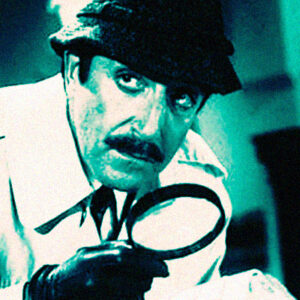The thing about spy shows is you can’t do anything else while you’re watching; to miss a micro-expression is to miss the plot. Such is the case with 1979’s Tinker Tailor Soldier Spy miniseries based on the le Carré book of the same name, which I recently watched in full. As in the case in real-life espionage, the series features very little in the way of action. Only one episode features gunfire; occasionally, a man jogs. It was, sincerely, riveting.
Plenty of Cold War-era spy thrillers understand that their audience is more interested in painstaking tradecraft and interpersonal deception than they are in Bond-esque jetpacks and explosions, and deliver accordingly. Tinker Tailor Soldier Spy goes a step further: what if a spy not only had to survive by his wits rather than his weapons, but in doing so, what if he had to be extremely polite at all times.
Such is the burden taken on by Alec Guinness’s George Smiley, a dour, droll cuckold and high-ranking intelligence officer whose devotion to England is only superseded by his commitment to social propriety. Smiley, recently and unjustly fired from his position as second in command of the Circus—the nickname for the cadre of top officers within the UK’s intelligence services—is tasked with ferreting out a mole leaking British secrets to the Soviets. It’s believed that the mole is one of the remaining members of the Circus, so Smiley and his few allies can’t let anyone know what they’re up to. (Rather, being professional spies, they can’t let anyone know even more than usual.) For his part, Smiley has to pretend to still be in forced retirement. Not the easiest way to go about an extremely high-stakes mission set at the height of the Cold War.
It’s not that Smiley is polite, per se, so much as his interactions almost always follow the form of politenessEven bearing these constraints in mind, Smiley sets about his mission with extreme delicacy. You could be forgiven for mistaking the setting of Tinker Tailor as an alternate-reality London where any act of rudeness sets off the offender’s exploding ankle monitor and blasts their component atoms into the mesosphere. Most of Smiley’s conversations with his various sources and suspects are comprised of intimation, allusion, and tactical civility.
I stopped writing this essay and finished watching the second installment of the Guiness-as-Smiley series, Smiley’s People, and have since updated this theory. It’s not that Smiley is polite, per se, so much as his interactions almost always follow the form of politeness—even if the content of his conversations are often brusque and sometimes escalate to barely-deniable threats.
To wit: A government official drops by Smiley’s house to drop off some important files and to seek advice about his failing marriage. Smiley rushes him out of his house with icy dispassion, not so much refusing all of the official’s entreaties and invitations as simply not acknowledging them. The British shifgrethor the show’s characters abide by demands that this brushing-off not be noticed, occasioning the official to loudly announce he “won’t stay for a drink” while Smiley marches him toward the door.
The climax of Smiley’s People revolves around a straight-up extrajudicial kidnapping of a Soviet diplomat at Smiley’s request. The diplomat is plucked off the street, bundled into a car, twice attempts to make a break for it only to be forcibly restrained—a classic abduction. Once the diplomat is brought before Smiley we see the culmination of the series, the widest gulf yet between the form of an interaction and its content. Smiley conducts a courteous if stern interview, telling the diplomat he’s free to go once he’s taken a look at some (extraordinarily incriminating) photographs of himself, subsequently blackmailing and extorting the kidnapped man into revealing information about the Soviet spymaster who Smiley’s after.
Throughout this process Guinness’s Smiley never raises his voice; not once does he rise from his seat. By weaponizing formality, he’s obviated the need for blunter instruments. Why steal secrets when you can ask politely?

















